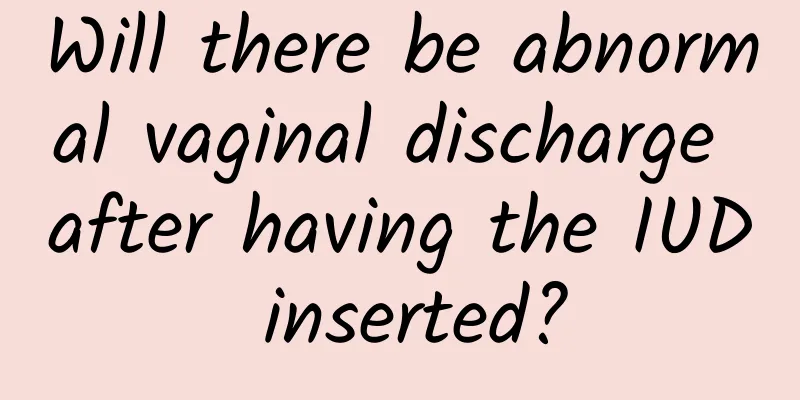What medicine cures endometriosis?

|
Endometriosis can be treated with medication to effectively manage symptoms and relieve pain. Common medications include hormonal drugs and nonsteroidal anti-inflammatory drugs (NSAIDs). Hormonal drugs such as oral contraceptives, gonadotropin-releasing hormone (GnRH) agonists, and progesterone help inhibit the growth of endometrial tissue, thereby reducing the pain caused by ectopic tissue. NSAIDs are mainly used to relieve inflammation and pain caused by ectopic lesions. Medical treatment for endometriosis is usually tailored to the severity of the patient's symptoms, the location of the lesions, and her plans to have children. Oral contraceptives are widely used for patients with mild to moderate symptoms. They work by gradually reducing endometrial proliferation, relieving pain, and controlling menstrual disorders. GnRH agonists are often used for more stubborn cases. These drugs work by inhibiting the production of estrogen by the ovaries, which reduces the activity of the endometrium. Long-term use may lead to a decrease in bone density, so use is usually limited to less than 6 months. Progestin therapy, such as the levonorgestrel intrauterine system (LNG-IUS) and oral dydrogesterone, is also considered a relatively effective option by inhibiting the growth of endometrial cells. Nonsteroidal anti-inflammatory drugs such as ibuprofen and naproxen can effectively relieve pain symptoms during menstruation and are often used to assist in symptom management. Medical treatment for endometriosis is usually tailored to the severity of the patient's symptoms, the location of the lesions, and her plans to have children. Oral contraceptives are widely used for patients with mild to moderate symptoms. They work by gradually reducing endometrial proliferation, relieving pain, and controlling menstrual disorders. GnRH agonists are often used for more stubborn cases. These drugs work by inhibiting the production of estrogen by the ovaries, which reduces the activity of the endometrium. Long-term use may lead to a decrease in bone density, so use is usually limited to less than 6 months. Progestin therapy, such as the levonorgestrel intrauterine system (LNG-IUS) and oral dydrogesterone, is also considered a relatively effective option by inhibiting the growth of endometrial cells. Nonsteroidal anti-inflammatory drugs such as ibuprofen and naproxen can effectively relieve pain symptoms during menstruation and are often used to assist in symptom management. For patients who are receiving medication, regular follow-up should be performed to evaluate the efficacy and side effects of the medication. Some patients may face discomfort caused by medication, such as mood changes or weight gain caused by fluctuations in hormone levels. In this case, adjusting the type or dosage of medication may be necessary. Patients can also help manage symptoms through lifestyle changes, such as increasing fiber-rich foods to promote digestive health and regular moderate-intensity exercise to improve circulation and reduce stress. If medication is ineffective or symptoms are severe, it is recommended to consult a medical professional in a timely manner. For some patients who are suitable for surgery, surgical removal of ectopic lesions may be a more long-term solution. |
<<: Typical symptoms of adenomyosis
>>: What are the symptoms of uterine fibroids?
Recommend
Several bad habits that need to be paid attention to in preventing adnexitis
Gynecological inflammation is mostly caused by so...
What medicine should be taken for moderate cervicitis? Two principles must be followed to prevent cervicitis
Women should always keep their private parts clea...
Can women with cervical erosion have artificial abortion? How to have an abortion with different symptoms of cervical erosion
In life, 40% of women suffer from cervical erosio...
Experts explain why painless abortion should not be done too early
What is the reason why painless abortion cannot b...
What is vaginitis?
What is vaginitis? 1. Long-term use of contracept...
Common symptoms of cervicitis
With the increasing incidence of cervicitis, wome...
Ways to help prevent adnexitis in daily life
The incidence of adnexitis in China is very high,...
What are the common methods of nursing adnexitis?
What are the nursing methods for adnexitis? Adnex...
What are the food taboos for uterine fibroids
Patients with uterine fibroids need to avoid high...
What fruits can I eat after hydatidiform mole curettage
After the evacuation of hydatidiform mole, it is ...
Safety risks of abortion surgery
Although abortion can promptly resolve the worrie...
Will urinary tract infection affect menstruation?
Will a urinary tract infection affect my menstrua...
What is the cause of vulvar pruritus
Vulvar pruritus may be caused by a variety of fac...
What's wrong with burping and bloating during menstruation?
What’s wrong with hiccups and bloating during men...
What to do with uterine fibroids during pregnancy? Can uterine fibroids smaller than 6 cm be left untreated during pregnancy?
When uterine fibroids occur in pregnant women, th...









